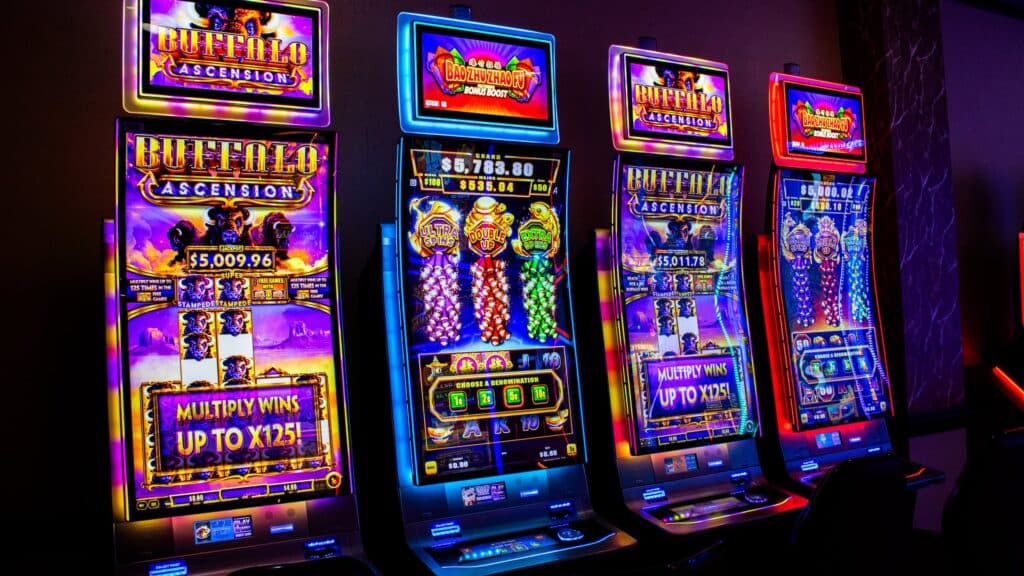When it comes to online and land-based slot machines, one of the most critical technologies that govern how these games work is the Random Number Generator (RNG). Slot machines are often viewed as games of pure luck, where players spin the reels hoping for a combination that will lead to a big win. However, the outcomes of each spin are determined by complex algorithms and the RNG is at the heart of this process. In this article, we will explore what RNGs are, how they work, and how they influence the gameplay and fairness of slot machines.
Whether you are a beginner just starting your slot machine journey or an experienced player looking to understand more about the technology behind the games, this guide will provide you with valuable insights. We will dive deep into the mechanics of RNGs, discuss their role in determining outcomes, and provide tips on how to approach slot machines with a better understanding of the technology at play.
What is an RNG?
A Random Number Generator (RNG) is a computer algorithm used to produce random results in a game. In the context of slot machines, it is responsible for determining the outcome of each spin, ensuring that each result is independent of previous or future spins. The RNG generates thousands of numbers every second, and when you press the spin button, the RNG stops at a number that corresponds to a specific combination of symbols on the reels.
RNGs in slot machines are designed to mimic randomness and unpredictability, making it impossible for players to predict the next outcome or manipulate the results. This is crucial in ensuring fairness in slot machines, both online and in land-based casinos. Since the results are based on a random number, there are no patterns or biases that players can exploit to gain an advantage.
Types of RNGs Used in Slot Machines
RNGs can be divided into two main categories: true RNGs and pseudo-RNGs. Both serve the same purpose in ensuring random outcomes in slot games, but they work in slightly different ways.
True RNGs
A true RNG relies on physical processes to generate random numbers. For example, it might use radioactive decay or other unpredictable physical phenomena to produce random data. While true RNGs are rarely used in slot machines due to the cost and complexity of hardware required, they are used in some specialized applications that demand the highest level of randomness.
Pseudo-RNGs
Most slot machines, both online and land-based, use pseudo-RNGs. These algorithms are based on complex mathematical formulas that produce random results. While they aren’t “truly” random in the strictest sense, they are sufficiently unpredictable for practical purposes. Pseudo-RNGs are widely accepted in the gaming industry because they provide a high level of randomness and can be tested for fairness and integrity.
For online slot machines, the software providers use pseudo-RNGs to generate outcomes for each spin. These systems are tested and verified by independent auditors to ensure they meet strict standards of fairness and randomness.
How RNGs Work in Slot Machines
To understand how RNGs affect slot gameplay, let’s take a look at the process that occurs behind the scenes when you spin the reels.
1. RNG Initialization
Every time you load a slot machine, the RNG is initialized and starts generating random numbers. In the case of online slots, this happens every millisecond. Each number corresponds to a specific position on each reel. In a five-reel slot machine, for example, the RNG generates five numbers, one for each reel, which will determine the stopping position of the reels after the spin.
2. Player Action
When you press the spin button, the RNG is paused, and the number it generates at that moment determines the outcome of the spin. Each of these numbers is mapped to a reel position, so the numbers directly influence which symbols will appear on the reels. Importantly, the result is completely independent of the previous spin, making each spin an isolated event.
3. Outcome Determination
The generated numbers are then mapped to the symbols on the reels. For instance, a specific random number might correspond to the "cherry" symbol on the first reel, the "bar" symbol on the second reel, and the "seven" symbol on the third reel. The combination of these symbols results in either a win or a loss, depending on the payline configuration and the rules of the game.
4. Post-Spin Analysis
Once the RNG has determined the outcome, the slot machine will calculate your payout based on the combination of symbols that landed on the active paylines. The payout will depend on factors such as the type of symbols, the number of matching symbols, and the bet size you placed for the spin. After the payout is awarded (if any), the RNG continues to generate new random numbers for the next spin.
The Importance of RNGs in Slot Machine Fairness
RNGs play a crucial role in ensuring that slot machines are fair and unpredictable. Because the outcome of each spin is determined by a random number, no player can predict or influence the result. This makes slot machines different from other casino games like poker or blackjack, where strategy can influence the outcome. In slot machines, winning is purely a matter of luck.
Ensuring Fair Play
One of the most important aspects of RNGs is their role in maintaining the integrity of the game. Since the results are random and cannot be influenced by players, this ensures that the game is fair. Both online and land-based casinos are required to adhere to strict regulations regarding RNGs to ensure that they provide fair results to players. Online casinos use third-party auditors, such as eCOGRA, to test their RNGs and certify that the outcomes are fair and random.
House Edge and RTP
While RNGs ensure fairness, they also impact the house edge and Return to Player (RTP) percentages of slot machines. The house edge is the percentage of each wager that the casino expects to keep in the long run, while RTP refers to the percentage of wagers that are paid back to players over time.
In online slots, the RTP is typically set by the game developer and is often between 92% and 98%. For example, if a slot has an RTP of 95%, this means that, on average, for every $100 wagered, $95 will be paid back to players as winnings. The remaining $5 is the house edge. The RNG ensures that the outcomes of the game are truly random, which in turn means that the RTP is determined by the game’s design and the specific random numbers generated by the RNG.
Fun Fact:
The highest possible RTP in most online slots is around 98%, meaning that a player could theoretically receive 98% of their wagers back over time. However, it's essential to remember that RTP is calculated over millions of spins, so it’s not a guarantee for short-term play.
How to Approach Slot Machines with an Understanding of RNGs
Now that we’ve covered how RNGs work and their importance in ensuring fairness in slot machines, let’s look at how you can use this knowledge to approach slot games with a more informed perspective.
1. Focus on RTP, Not on the RNG
While it’s essential to understand that RNGs ensure fairness, you should also focus on the RTP of the slot machine. Choosing slots with a higher RTP means you’re playing a game with a higher theoretical return. While RNGs ensure fairness, they can’t change the RTP, which is set by the game’s design.
2. Avoid Trying to “Beat” the RNG
Since the RNG generates truly random outcomes, trying to “predict” or “beat” the machine is impossible. Every spin is independent of the last, so there’s no pattern or system you can use to increase your chances of winning. The best approach is to play for enjoyment and with a clear understanding of the odds.
3. Understand Volatility
Slot machines come with varying levels of volatility, which determines the frequency and size of payouts. High-volatility slots may pay out large sums but less frequently, while low-volatility slots pay smaller amounts more often. The RNG determines these outcomes, and understanding the volatility of a slot can help you manage your bankroll effectively.
Conclusion: The Impact of RNGs on Slot Machine Play
The Random Number Generator is the backbone of modern slot machines, both online and land-based. It ensures that each spin is independent, random, and fair, making it impossible for players to predict or influence the outcome. By understanding how RNGs work, you can approach slot machines with a better understanding of the mechanics behind the game.
Whether you’re a beginner or an advanced player, knowing how RNGs impact the gameplay and RTP of slot machines can enhance your experience and help you make more informed decisions when choosing which games to play. However, remember that slot machines are ultimately games of luck, and the most important thing is to have fun while playing.
Good luck, and may the reels spin in your favor!



